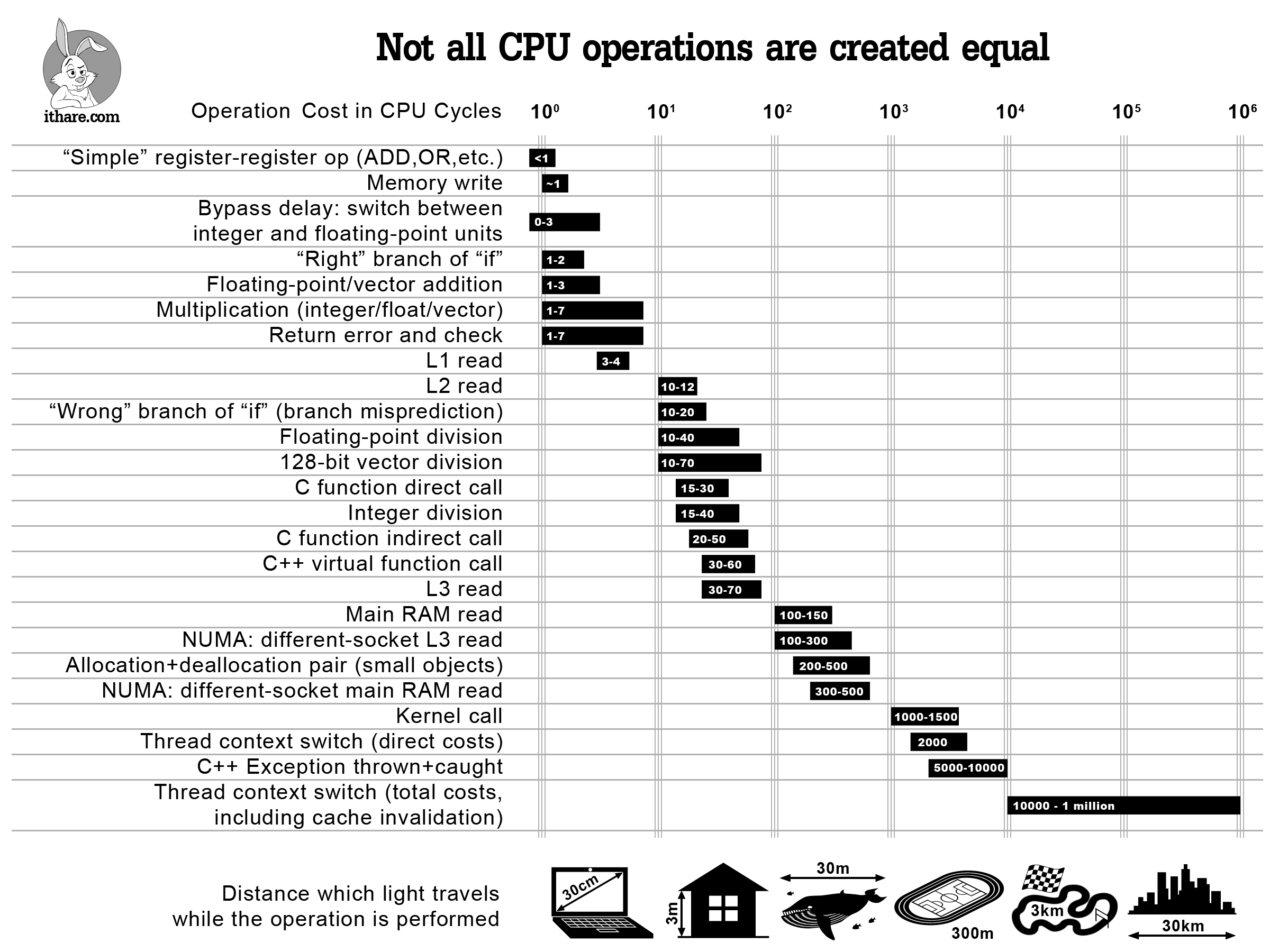When type inference fails -- Krzysztof Ostrowski
C++11 re-introduces auto keyword that enables basic type inference. Using auto not only improves code readability.
When type inference fails
by Krzysztof Ostrowski
From the article:
Use of type inference puts impact on what is possible to be done with certain value, i.e. on its interface or concept it models, rather than on its concrete type. Unfortunately,
autodoes type inference locally, thus is not such powerful as we might expect. Here follows some examples ofauto-inference failures.

 A very interesting article about the cost of our basic operations.
A very interesting article about the cost of our basic operations. The new GoingNative is out!
The new GoingNative is out!